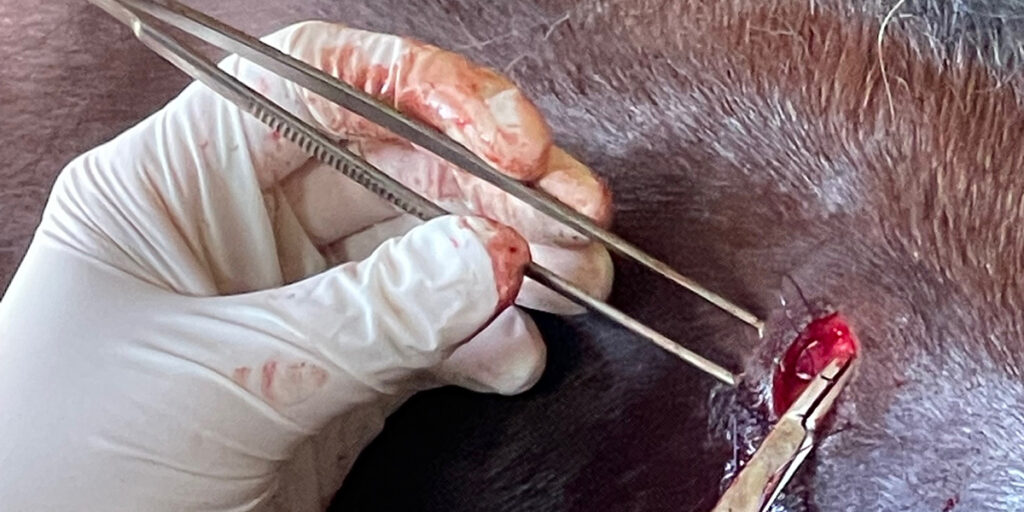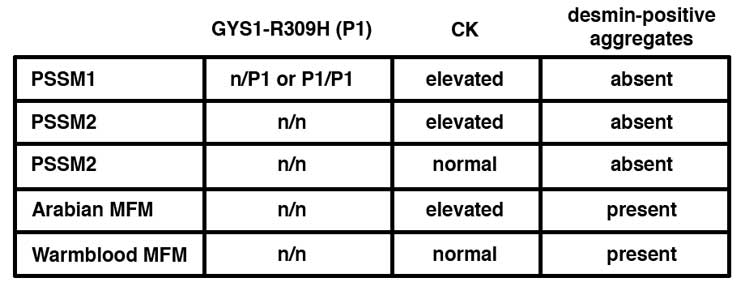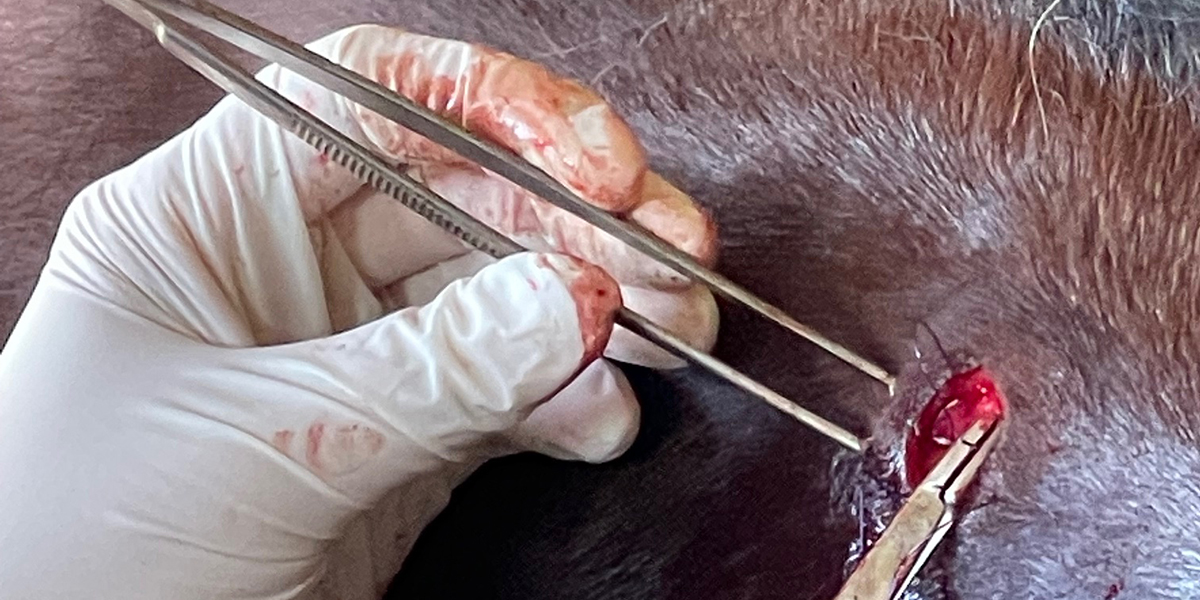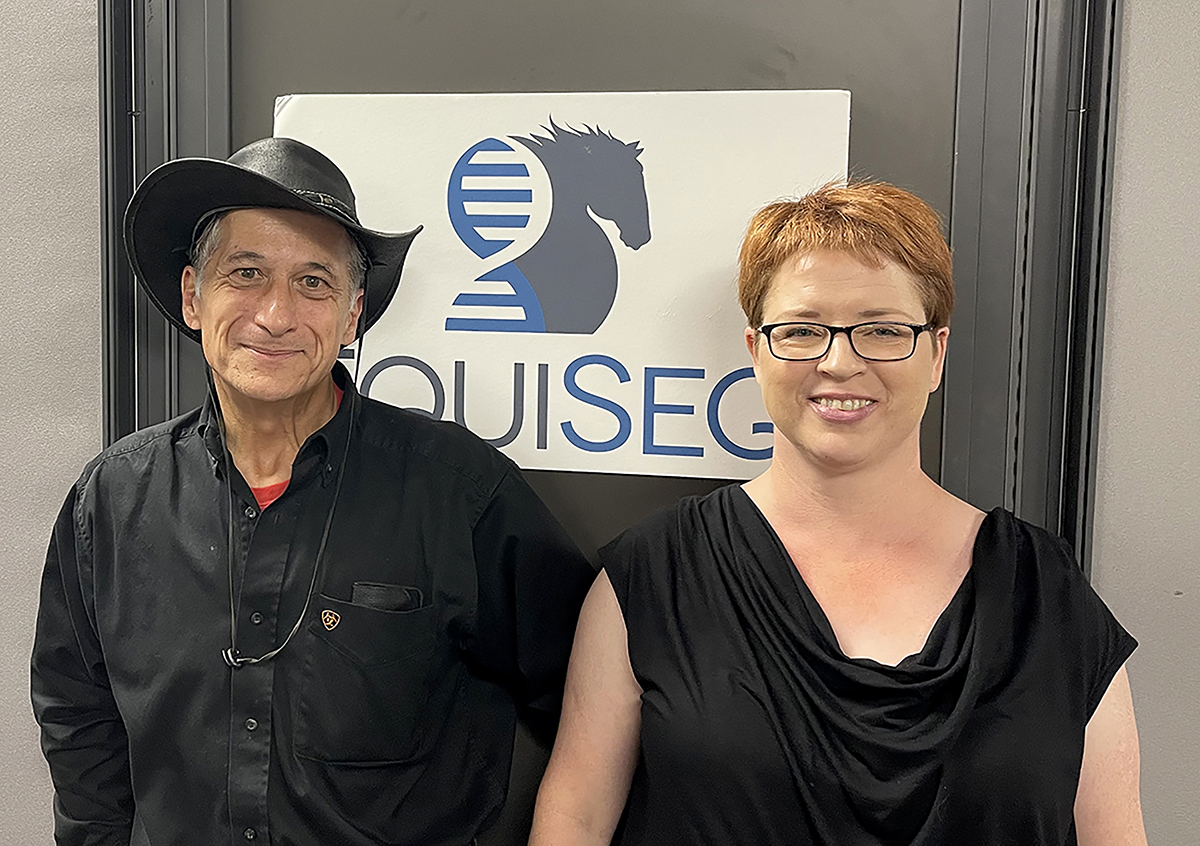Blog
Polysaccharide Storage Myopathy type 2 (PSSM2)

Polysaccharide Storage Myopathy type 2 (PSSM2) is a type of exercise intolerance seen in horses. Polysaccharide Storage Myopathy type 2 (PSSM2) is a disease state defined by symptoms of exercise intolerance, absence of the genetic variant GYS1-R309H (P1) that is associated with Polysaccharide Storage Myopathy type 1 (PSSM1) [1], and abnormalities observed in muscle biopsy. The PSSM2 disease state was originally defined during investigation of PSSM1, when it was discovered that some horses with exercise intolerance test negative for GYS1-R309H (P1) and lack the enlarged, amylase-resistant glycogen granules seen in muscle biopsies from horses with the GYS1-R309H (P1) variant [2].
Despite a decade of research since PSSM2 was first described, there is no evidence that PSSM2 is a disorder of carbohydrate metabolism. PSSM2 was originally postulated to be a disorder of glycogen metabolism because muscle biopsies of horses with PSSM2 showed clumping of glycogen granules of normal size. A study of Arabian Myofibrillar Myopathy (MFM) showed that the clumping of glycogen granules in regions of myofibrillar disorganization gives the false appearance of a glycogen storage disorder [3]. Several research teams (including EquiSeq) have performed whole genome sequencing on horses diagnosed with PSSM2 and have failed to find any genetic variants in the limited number of genes central to carbohydrate metabolism. The term PSSM2 is therefore of historical significance only, and will likely be replaced by more accurate terms as the genetic variants associated with PSSM2 are identified.

In a recent review, Dr. Stephanie Valberg defines additional exercise intolerance conditions as summarized in the image above [4]. Horses with exercise intolerance that test positive for GYS1-R309H (P1) are diagnosed with PSSM1. Horses with symptoms of exercise intolerance that test negative for GYS1-R309H (P1) that do not show desmin-positive aggregates on muscle biopsy are diagnosed with PSSM2. Some of these horses have episodes of elevated serum creatine kinase (CK), while others do not [5]. Horses with symptoms of exercise intolerance that show desmin-positive aggregates on muscle biopsy are diagnosed with Myofibrillar Myopathy (MFM). Some of these horses have episodes of elevated serum creatine kinase (CK), while others do not. Elevated CK is common in Arabians diagnosed with MFM, while elevated CK is not seen in Warmbloods diagnosed with MFM.
Current research is focused on the identification of genetic variants associated with PSSM2 and MFM. Because horses with either of these disease states may show elevated CK or not, it is unlikely that a single genetic variant is the cause of all cases of either PSSM2 or MFM. While it is useful to focus research on PSSM2 or MFM in a single breed, it is also unlikely that a causative genetic variant will be entirely restricted to a single modern breed.
Citations
[1] McCue, ME et al. (2008). “Glycogen synthase (GYS1) mutation causes a novel skeletal muscle glycogenosis.” Genomics. 91(5):458-66. PMID: 18358695.
[2] McCue, ME et al. (2009). “Comparative skeletal muscle histopathologic and ultrastructural features in two forms of polysaccharide storage myopathy in horses.” Vet Pathol. 46(6):1281-1291. PMID: 19605906.
[3] Valberg, SJ et al. (2016). “Suspected myofibrillar myopathy in Arabian horses with a history of exertional rhabdomyolysis.” Equine Vet J. 48(5):548-56. PMID: 26234161.
[4] Valberg, SJ (2018). “Muscle Conditions Affecting Sport Horses.” Vet Clin Equine. 34(2):253-276. PMID: 29853158.
[5] Lewis, SS et al. (2017). “Clinical characteristics and muscle glycogen concentrations in warmblood horses with polysaccharide storage myopathy.” Am J Vet Res. 2017 Nov;78(11):1305-1312. PMID: 29076373.
Share this post
From the blog
The latest industry news, interviews, technologies, and resources.
What is PSSM?
Polysaccharide Storage Myopathy (PSSM) is a form of equine exercise intolerance characterized by…
Generatio Scientist Visits EquiSeq
Dr. Melissa Cox, a scientist at Generatio, visited with Chief Scientific Officer Dr….


